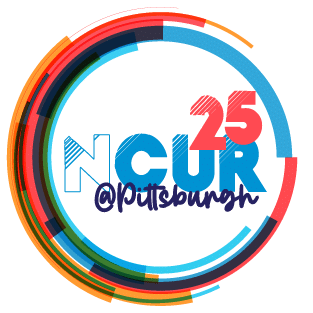Engaging Minds. Empowering Students. Are You Ready?
NCUR 2025 @Pittsburgh | April 7-9, 2025

The National Conference on Undergraduate Research (NCUR) is dedicated to promoting undergraduate research, scholarship and creative activity in all fields of study by sponsoring an annual conference for students. Unlike meetings of academic professional organizations, this gathering of student scholars welcomes presenters from all institutions of higher learning and from all disciplines. Overall, this conference offers a unique environment for the celebration and promotion of undergraduate student achievement; provides models of exemplary research, scholarship, and creative activity; and offers student career readiness development.
Why Participate?
We encourage student researchers to participate in NCUR to forge new connections, advocate for undergraduate research, build students’ professional profiles, expand on their resumes, hone in on their essential career skills, and much more. We encourage faculty, mentors, and the undergraduate research community to participate in NCUR to continue to advocate and celebrate the community as well as expand upon their professional development from various mentoring sessions.
Dates You Need to Know
| May 2024 | Future Fair Registration Opens to Public |
| September 2024 | Submissions Portal Opens |
| November 2024 | Volunteer [Abstract Review] Call Closes |
| December 2024 | Submission Portal Closes |
| January 2025 | Notifications Released + Registration Opens |
| February 2025 | Institutional Invoices Sent + Future Fair Registration Closes |
| March 2024 | Registration Closes Speaker Materials Due |
| April 7-9, 2025 | NCUR 2025 |
For any questions about NCUR 2025, please reach out to us at NCUR@CUR.org.
Please continue to check back as we put together NCUR 2024 proceedings.
Looking for previous years? Please reach out to NCUR@CUR.org.



